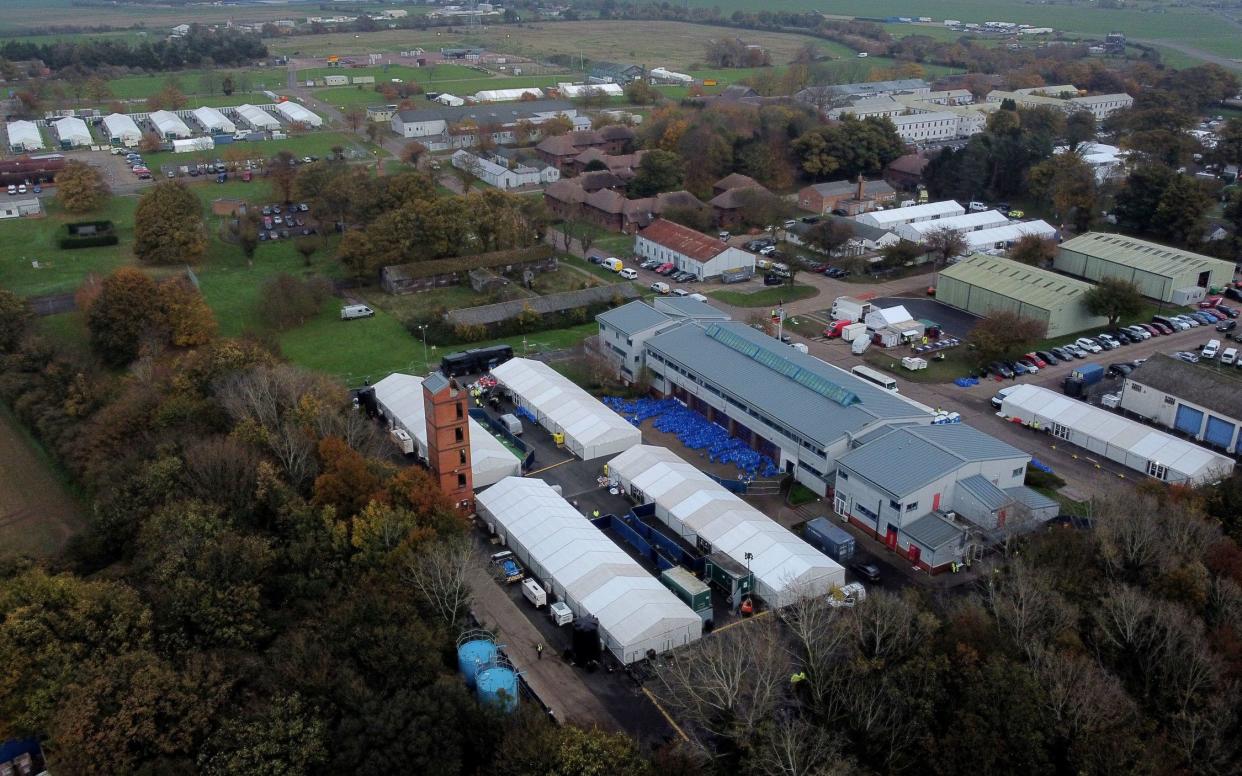Home Office was warned in July over risks of infectious diseases spreading among Manston migrants

The Home Office was warned four months ago that measures to prevent the spread of infectious diseases such as diphtheria at Manston asylum processing centre were “poor” and staff were ill-prepared to deal with them.
Watchdogs who inspected the site at the end of July said medical staff had no guidance, policy or procedure to manage infectious diseases, months before the current outbreak and the death earlier in November of a migrant at Manston who had the infection.
Health officials confirmed on Monday that there had been 50 confirmed diphtheria cases among asylum seekers, up from two nationally in 2021.
The warnings by HM inspectors of prisons – given to Home Office officials in a post-inspection briefing – pre-date the surge in migrants over the summer that led to chronic overcrowding at the Manston centre in Kent with 4,000 asylum seekers, 2,500 over its capacity.
The Association of Directors of Public Health has criticised the rush to transfer asylum seekers out of the Manston centre. It said it had led to the spread of diphtheria, with migrants being moved to hotels without sufficient notice to health authorities or the necessary information on their health conditions.
'Paramedic staff unsure of procedure'
On Monday Robert Jenrick, the immigration minister, announced asylum seekers with symptoms of diphtheria will now be isolated for a “short period” at Manston, or in designated isolation hotels. Any asylum seekers who may have the infection but are already in hotels will be told to isolate in their rooms while they are treated.
HM inspectors of prison visited Manston on July 25 to 28. Although there was no evidence of diphtheria, they reported: “Facilities for the management of detainees with Covid or other infectious diseases were poor.
“Detainees were placed in a claustrophobic cabin with no clear responsibility assigned for managing their care. Paramedic staff were unsure of any guidance, policy or procedure for the management of infectious diseases.”
Although the report was only made public in November, these concerns were passed to Home Office officials at the end of the inspection, three months before The Telegraph revealed the first cases of diphtheria from Manston on October 20.
The UK Health Security Agency (UKHSA) said there had been an "increase" in cases of diphtheria reported among asylum seekers arriving in the UK, with 50 identified as of Nov 25. The figure stood at 39 on Nov 10.
The bulk of the cases – 38 – are in the south east but others have been reported throughout the rest of England where asylum seekers have been moved to hotels. Two victims have been hospitalised, and one Manston migrant died though an autopsy has yet to establish whether diphtheria was the cause of his death.
Establish level of diseases
All are thought to have contracted the disease either in their home country or en route to the UK before crossing the Channel. Mr Jenrick said the Government was working with French counterparts to establish the level of infectious diseases in migrant camps in northern France.
Ministers and health officials have insisted the risk to the public of diphtheria is very low and infections are rare because of the high vaccination rates in the UK. The illness, which affects the nose, throat and sometimes skin, can be fatal if not treated quickly but antibiotics and other medicines are available.
The Government is offering vaccination to all migrants arriving by small boat. This weekend there was 100 per cent take-up, said Mr Jenrick. Earlier, Steve Barclay, the Health Secretary, said 500 people were vaccinated before they were moved out of Manston and into hotels around the country.

 Yahoo Movies
Yahoo Movies 
